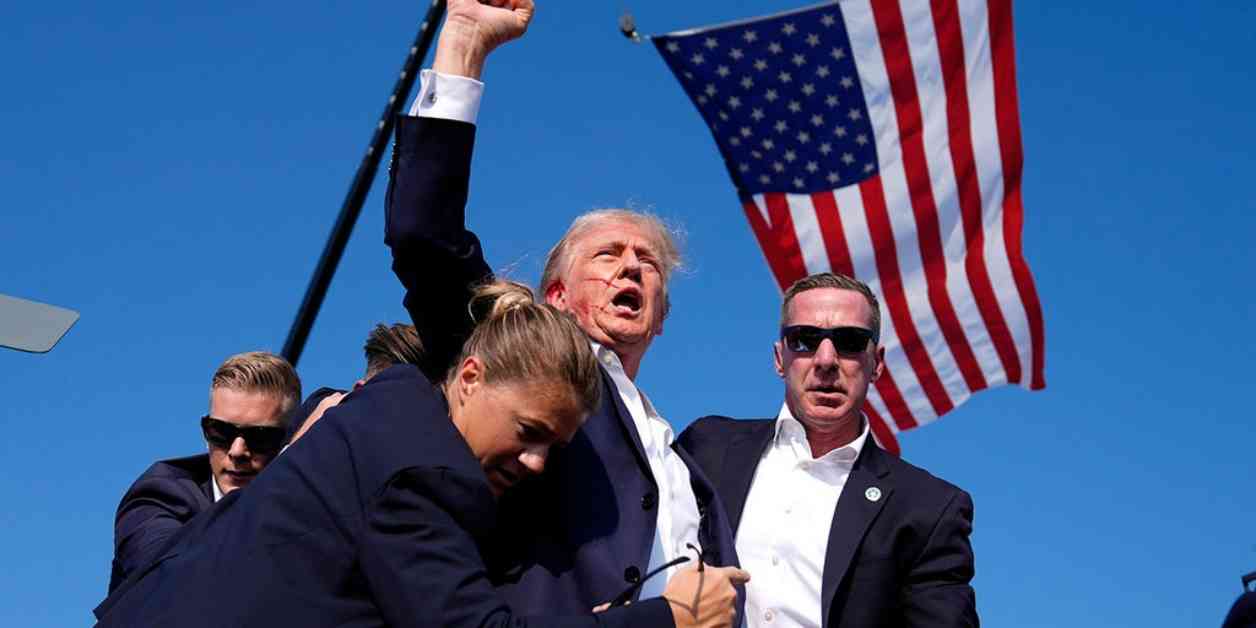Following the attempted assassination of former President Trump last month, a non-profit organization has launched an investigation into the Diversity, Equity, and Inclusion (DEI) policies of the Secret Service. The Mountain States Legal Foundation (MLSF), based in Colorado, is looking into how these policies may have contributed to lax security measures at Trump’s rally in Butler, Pennsylvania, where the assailant managed to fire shots at the former president. The incident resulted in one fatality and serious injuries to two others, raising concerns about the effectiveness of the agency’s hiring, retention, and promotion practices.
**Examining the Impact of DEI Policies**
Critics of DEI argue that such policies prioritize certain demographics over qualifications, potentially leading to a less competent workforce. MLSF’s investigation aims to shed light on how DEI may have influenced the Secret Service’s decision-making processes, particularly in crucial security matters. By gathering information from current and former agents, as well as applicants who believe they faced discrimination based on their sex, MLSF seeks to uncover any potential biases within the agency.
**Legal Action Against the Secret Service**
In response to their findings, MLSF plans to file a lawsuit against the Secret Service for what they deem as discriminatory and dangerous civil rights violations. The organization asserts that only the most qualified individuals should be hired, retained, and promoted within the agency to ensure the safety of those under its protection. By holding the Secret Service accountable for its alleged employment practices, MLSF aims to challenge the status quo and advocate for a merit-based approach to recruitment and advancement.
**Criticism of the Secret Service’s Handling of Security**
The Secret Service has faced significant backlash for its handling of security at the rally where the assassination attempt took place. Some critics attribute the incident to the agency’s DEI policies, suggesting that a focus on diversity may have compromised the overall effectiveness of security measures. Calls for a reevaluation of hiring practices and a return to merit-based selection criteria have gained traction in the wake of the assassination attempt.
**Defense of Female Agents**
Despite the criticism, former President Trump came to the defense of the female agents who responded to the gunfire at the rally. He praised their quick actions and bravery in shielding him from harm, dismissing any doubts about their abilities based on gender stereotypes. Trump’s acknowledgment of the agents’ professionalism highlights the importance of recognizing individual merit and competence regardless of demographic factors.
**Challenges to DEI Culture at the Secret Service**
Former Secret Service Director Kimberly Cheatle has been criticized for prioritizing DEI initiatives over the agency’s core mission of protecting its personnel. Cheatle’s commitment to increasing female representation within the agency has raised concerns about the potential impact of DEI culture on security protocols. The push for diversity and inclusion, while well-intentioned, has sparked a debate over whether merit should take precedence over demographic considerations in critical security roles.
**The Role of DEI in Law Enforcement**
The debate over DEI policies in law enforcement agencies like the Secret Service reflects broader societal discussions about diversity and meritocracy. While promoting inclusivity and equal opportunity is essential, the question remains whether DEI initiatives should supersede qualifications and experience in high-stakes environments. Balancing the need for diversity with the imperative of maintaining security standards poses a complex challenge for organizations tasked with safeguarding public figures and national interests.
**Moving Forward**
As the investigation into the Secret Service’s DEI policies unfolds, stakeholders on all sides of the issue will need to consider the implications of their positions. Striking a balance between diversity and meritocracy is essential for ensuring the effectiveness and integrity of law enforcement agencies. By addressing concerns raised by critics and advocates alike, the Secret Service can work towards enhancing its security protocols while fostering a diverse and inclusive workforce.
**Conclusion**
The ongoing scrutiny of the Secret Service’s DEI policies underscores the complexities of navigating diversity and merit in high-pressure environments. As the investigation progresses and legal action unfolds, the agency will need to reassess its approach to recruitment, retention, and promotion to uphold its mission of protecting those under its care. By fostering a culture of excellence that values competence above all else, the Secret Service can strive towards becoming a model of security and inclusivity in the law enforcement community.


